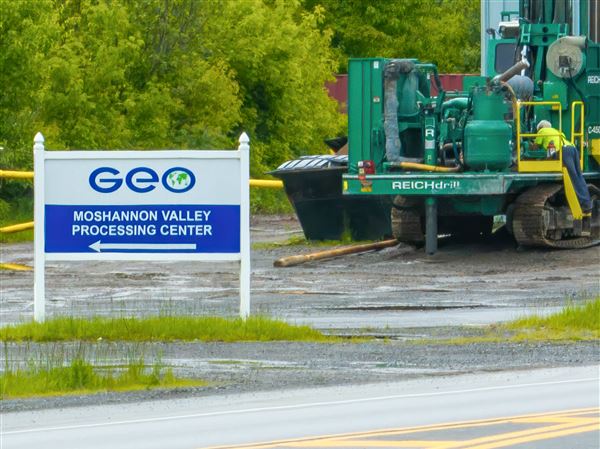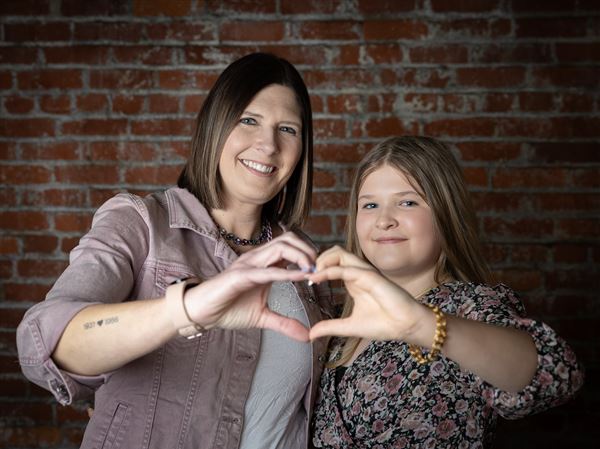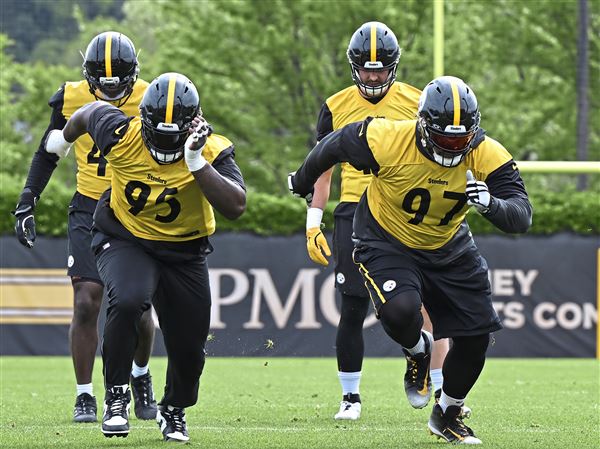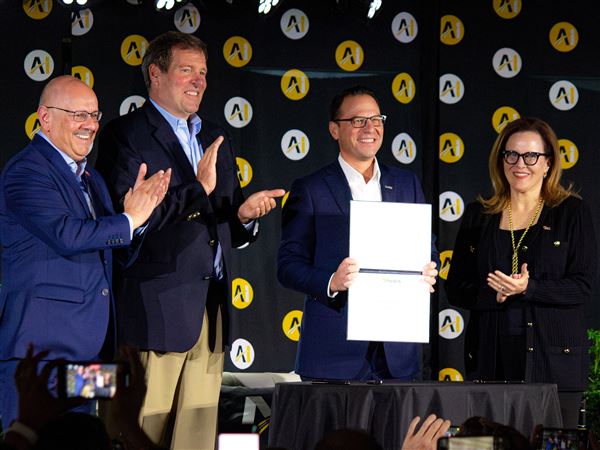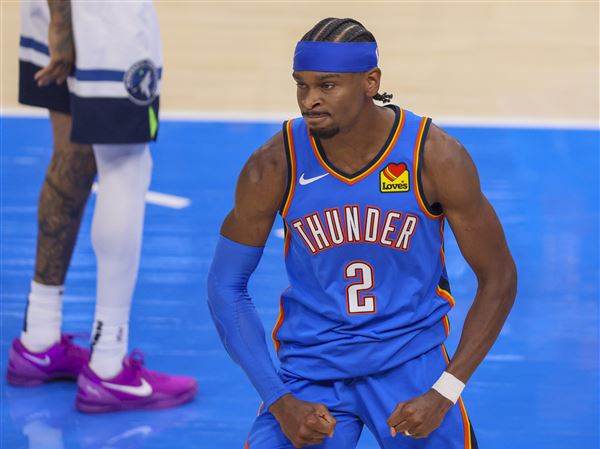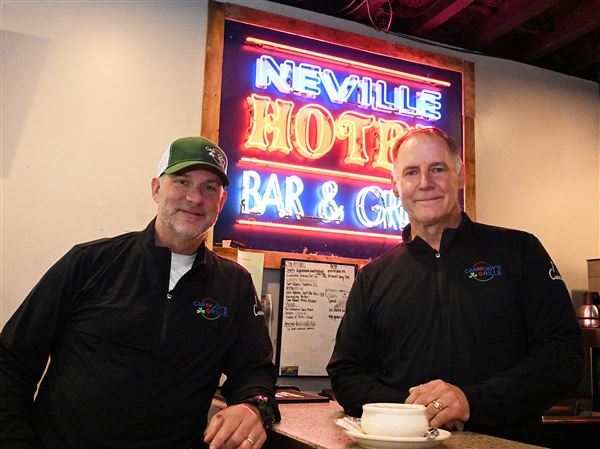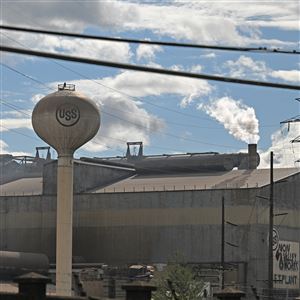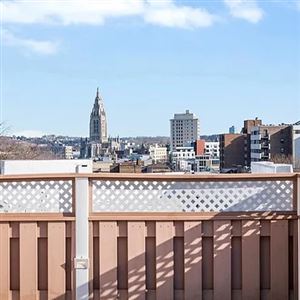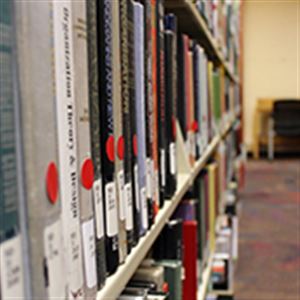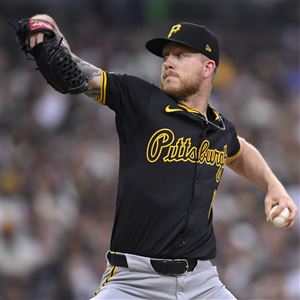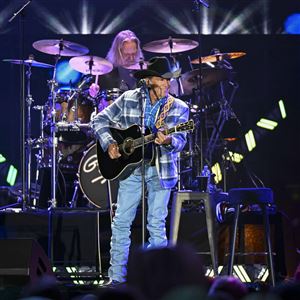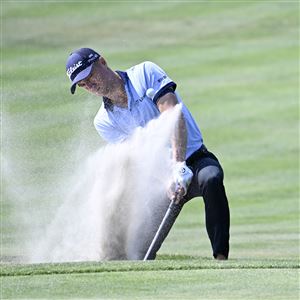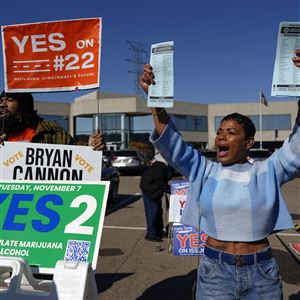Academy Award-winnng director and producer Kevin Costner has been in a long list of successful movies including "Dances With Wolves," "The Bodyguard" with Whitney Houston, "Bull Durham" and "Field of Dreams." Recently, he gave a eulogy for Ms. Houston, which gained him admiration for its genuine nature. He is also an accomplished musician. His band Modern West is on tour, but it's his role in the History channel's six-hour miniseries "Hatfields & McCoys" that has him talking. He plays Devil Anse Hatfield in the true story of an American family feud. Bill Paxton is his arch enemy in the role of Randall McCoy. The 57-year-old has been married since 2004 to his second wife. He has seven children. "Hatfields & McCoys" premieres at 9 p.m. May 28, Memorial Day.
You do a great job with that grizzled look on "Hatfields & McCoys."
[Laughing.] Yeah, well, I had to get rid of it. My children didn't recognize me when I came home.
So what attracted you to this backwoods feud?
It was the writing. I knew the story. I don't get involved with movies just because of the story. I have to make sure they have this kind of film architecture that I think is interesting. While I like the story and I like American history, I don't just say yes to something because it has horses or baseball bats or blah, blah blah. It has to have really good writing or something I didn't realize, or there's a brutality, an honesty. The word authenticity is maybe more appropriate.
Yes, and neither character is 100 percent good or evil in "Hatfields & McCoys."
That's right and that's kind of like life, right?
Speaking of life, did you learn to ride a horse before or after you began acting?
Before. [Laughing] I've been trying to get bad guys since I was little. I started with my dog. He'd go by the couch. I'd jump off the couch and tackle him and have a knife fight with my dog -- imaginary knife fight. Because my dog was a terrier he had a really fierce growl so it was quite a battle.
You spend a lot of time bringing characters to life. Do they stay with you after a project is finished?
Well, this one stayed with me as I was doing it, and I began to write a lot of music. We did a concept album, and it will come out about a week before ["Hatfields & McCoys"] called "Famous for Killing Each Other." I just kind of really got into this story, and I was surprised all this music came pouring out of myself and my band mates. So not only did we write the theme for the movie, but we wrote this compilation, concept album. I'm as proud of that as anything I've ever done.
So what do you get out of performing?
I mean, that's interesting if we look back at ourselves. The truth is I'm a lot of things, but to the world it is mostly these two things [acting and music]. I think if you boil me down, I am a performer. I like telling stories whether they're four minutes long or four hours. I don't care. I guess that's an aspect of my life, but performing is how I've been able to make a living.
Did your parents support your desire to act?
Not really. They were confused by it. Listen, I came from a very conservative background, so the idea of Hollywood -- that's just where people go to have their hearts broken, you know? That's where they go to end up in drug rehab. They grew up in the era of Richard Burton and Elizabeth Taylor.
The other problem is they didn't know anything about the business, so there was no way for them to help me. I had gone to college, so they were saying, "Why are you throwing this away?" I just came to terms with who I thought I was.
So did they get to see your success and embrace it?
Oh my God, my parents, you know on the first day of me shooting "Dances With Wolves," were out in a trailer setting up on a hill in lawn chairs waving at me. It was like every Little League game I've ever done. So I had to explain it to the whole crew -- those people are my parents [laughing]. I guess if you can't be embarrassed by it it's kind of sweet.
Many people in your industry get an inflated view of themselves. That does not seem to have happened to you.
I also didn't become a star at 18 or 19. I started doing "Silverado" and those movies when I was 27, 28, so I had in my mind what I wanted to do, not how I was perceived.
You know a lot of people were, "Oh boy he really made this jump to directing really quick." Well, when I decided to be an actor I didn't make a check for six or seven years. But during that time I worked as a stage manager at a sound studio. I watched everything. So in my own mind I knew what I wanted to do and what I was going to do. I never told the people I was working with that I was an actor because nobody wants to work next to a pining actor.
I like what I do. I'm not overly impressed with what I do. I take what I do seriously, but I don't think it's all that serious.
Do you find acting is a lot about instinct, and did you have that ability or did you have to learn to trust your instincts?
The biggest decision in my life was to become an actor because it represented a break from the conservative background. You get a job, you get married, you go out and you do these things. I was smack dab in the middle of that maze. Not that there's anything bad about it. You know, a man grows up, he gets a real job.
My dad only had one job -- climbing poles. I mean he was as handsome as Paul Newman. He just wore those Levis and those Levi shirts and the more faded they got, the more handsome he got. He was strong, but he came out of the Dust Bowl and the Depression. A guy gets a job and you stick with it.
I didn't grow up as a contrary kid. I didn't start off being against the Vietnam War because my brother was in the Vietnam War. Why would I root against him? I was also 14 years old, hearing my parents talk at the kitchen table. When you're a kid you kind of adopt your parents' points of view. My parents didn't like people with long hair. So when it came time I thought to myself, "I'm not a very good student and I'm out here with all these people who are good students."
I had traveled. I worked fishing boats. I built canoes and went down the same rivers Lewis and Clark went down. So half of me was unafraid of adventure -- of going out and doing something that had never been done or I didn't know about. I finally had an internal dialogue and had to admit that I wanted to act. I knew I needed to get in touch with my soul. I was lucky to do that, but it didn't mean I was making any money [laughing].
Did you write the eulogy you gave for Whitney Houston?
Yeah, yeah. I talked to my daughter and I talked to a good friend because I didn't know I would be talking. The pressure was building up, "Well, what does Kevin think?" I was thinking, "Who cares what I think." I mean this woman died, this wonderful entertainer. I didn't realize how much people attached me to Whitney.
Somebody even released a statement that I didn't release. It was a very thoughtful one, but I didn't put it out there. Finally, I got a call from Dionne Warwick, and she said, "Would you come and speak?" I could tell her heart was broken and I said, "Yes." I began to panic at that point, you know. What would I say? I talked to some of my friends about my memories and began to think hard and just began writing.
So you were really going to bring Princess Diana in as the next "Bodyguard" star?
We'd been talking about it.
Do you think you are skilled at reading people?
No, I've been disappointed by a lot of people that I put a lot of faith in. I wasn't disappointed by Whitney. I guess the truth is I haven't let the failures -- or the perceived failures -- I've not let them harden me. I've never let it close my circle. I am very willing to give people a first chance, though. ... I give actresses their first chance, I give directors their first chance, I give writers their first chance. I believe young blood can give blood.
I want people to succeed around me. I get joy out of that. I don't like being the head flea on a dead dog.
First Published: May 21, 2012, 8:00 a.m.
Updated: May 21, 2012, 9:34 a.m.
